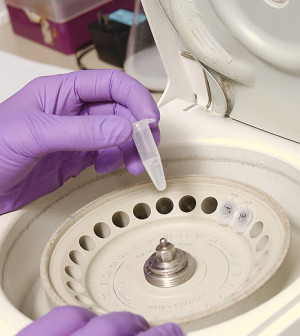- Could Your Grocery Store Meat Be Causing Recurring UTIs?
- Are You Making This Expensive Thermostat Error This Winter?
- Recognizing the Signs of Hypothyroidism
- 10 Strategies to Overcome Insomnia
- Could Artificial Sweeteners Be Aging the Brain Faster?
- Techniques for Soothing Your Nervous System
- Does the Water in Your House Smell Funny? Here’s Why
- Can a Daily Dose of Apple Cider Vinegar Actually Aid Weight Loss?
- 6 Health Beverages That Can Actually Spike Your Blood Sugar
- Treatment Options for Social Anxiety Disorder
Preventing Emergency Surgeries Could Save $1 Billion


Strategies to reduce the number of emergency surgeries in the United States could save up to $1 billion in health care costs over a decade, new research suggests.
The study also found that surgeries planned ahead of time (elective surgery) are less risky for patients and generally have better outcomes.
“The costs of surgical care represent nearly 30 percent of total health care expenditures and they are projected to total more than $900 billion by 2025,” study author Dr. Adil Haider, director of the Center for Surgery and Public Health at Brigham and Women’s Hospital in Boston, said in a hospital news release. Haider was at the Center for Surgical Trials and Outcomes Research at Johns Hopkins University while conducting the study.
“If 10 percent of these emergency surgeries had been performed electively, the cost difference would have been nearly $1 billion over 10 years,” Haider said.
“Importantly, elective procedures are better for patients, too, who experience lower rates of mortality and better outcomes. There is a tremendous opportunity to both save lives and decrease costs,” he added.
The researchers looked at three common operations for the study. One is a procedure to repair the main artery in the abdomen (aortic aneurysm repair). The second is heart surgery to restore blood supply to the heart (coronary artery bypass graft). The third operation was surgery to remove part of the large intestine (colon resection).
The researchers analyzed data on more than 600,000 patients. All had one of these procedures between 2001 and 2010.
The researchers compared the hospital costs and risk of death when surgeries were planned versus when they were performed in an emergency.
Emergency surgery was 53 percent more expensive for colon resection than elective surgery. Emergency procedures were 30 percent more expensive for abdominal aortic aneurysm repair and 17 percent more expensive for coronary artery bypass graft, the researchers found.
People who had planned surgery also had lower rates of death than patients who had emergency procedures.
Results of the study were published online in the Annals of Surgery.
More information
The U.S. Centers for Disease Control and Prevention provides more information on health expenditures.
Source: HealthDay
Copyright © 2026 HealthDay. All rights reserved.










